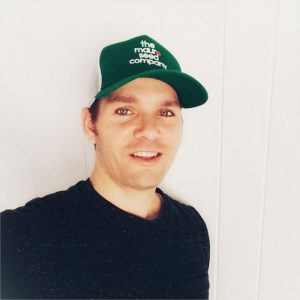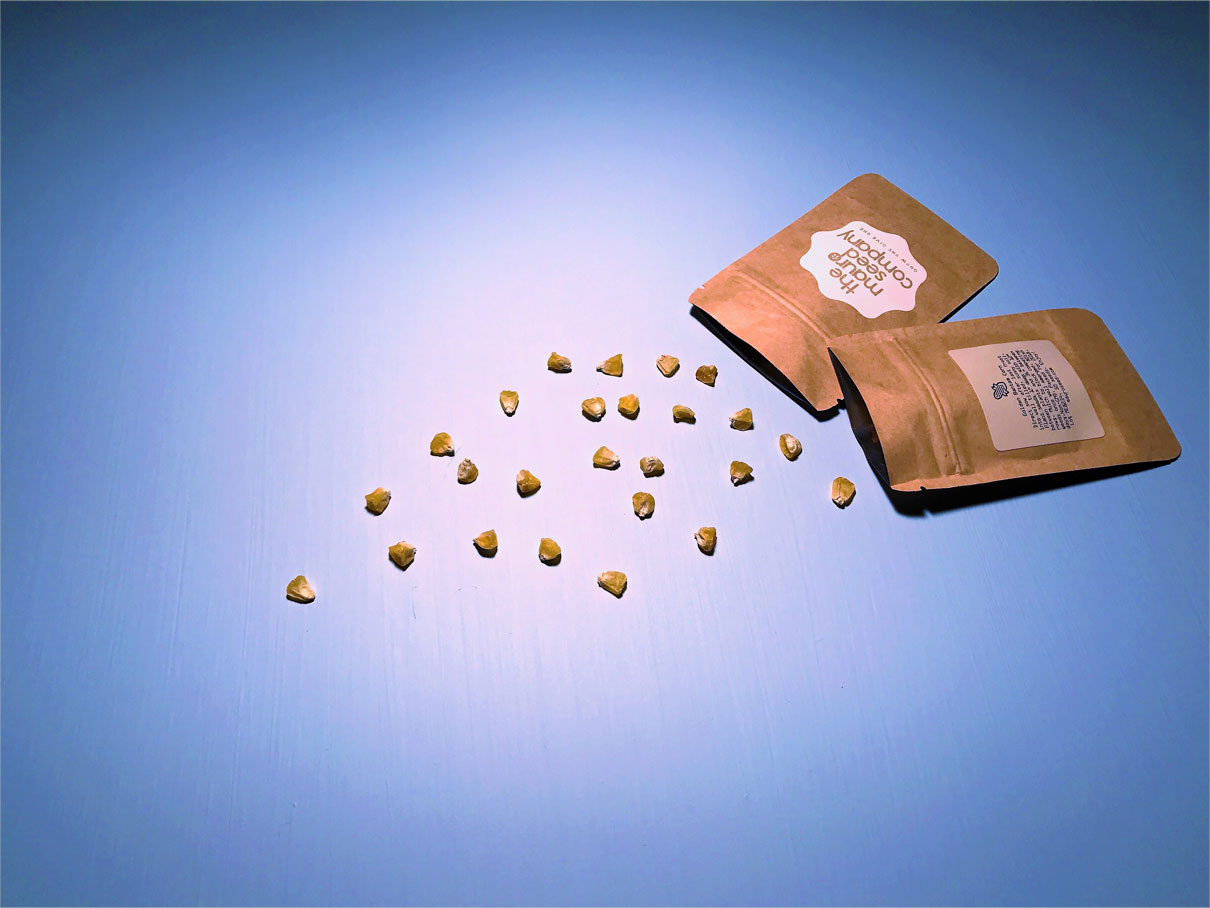It was frustration that propelled Dave Mauro to start his business. Volunteering at a local food bank, distributing food to recipients who came back every week, became dissatisfying. He wanted to make an impact, and he found that giving seed offered the best investment: an opportunity to feed the most people, at the furthest distance, at the lowest cost, for the longest time—year after year.

Dave Mauro, owner of Mauro Seed Company
Mauro Seed Company launched out of Dave’s home garage near Nashville, Tennessee—selling non-GMO, heirloom garden seeds to retail and wholesale markets through a complete online catalog. The enterprise—a family affair, aided by his wife, three daughters, and a few seasonal helpers—features a “Grow one, Give one” approach. For each pack of tomato, pepper, cilantro, or broccoli seeds purchased, the company donates one pack to a partner organization that teaches people how to feed themselves. These organizations are carefully vetted operations, including non-profits, schools, and community gardens that provide seed, agricultural training, and seed saving techniques to help needy individuals become food independent. Most are based in the U.S., Guatemala, Zimbabwe, Haiti, and Venezuela; about 75 percent of the seeds are sent abroad. Since 2016, Mauro Seed has donated enough seed to produce two million pounds of food.
“We wanted to scale the effort with a very specific business model—to go from hand-outs to hand-ups,” Dave said. “The giving part of the model is actually harder than the selling—we target our recipients and partners to make the likelihood greatest that people will actually begin to grow their own food.”
Spreading the seed wealth
Tennessee-based nonprofit cul2vate used its donated seeds to grow vegetables in a farmer-training program for the chronically unemployed. It gives 50 percent of its harvest to hunger relief initiatives, and gives seeds to low-income potential gardeners. Grow Appalachia in Kentucky teaches rural Appalachians to garden—helping 14,000 people to produce nearly 3 million pounds of food over the last eight years. It has received over 400 pounds of seeds from Mauro Seed Company—bean, pea, corn, cucumber, cabbage, squash, and watermelon—for use in training modules and distributed for home growing. Both organizations note that the seed donations free up money for education, training, and tools that gardeners typically can’t afford.
Further afield, Foundations for Farming in Zimbabwe and Semilla Nueva in Guatemala are prime recipients of Mauro’s nearly 100 seed varieties. Outside of the U.S., organizations are more focused on farmer training to create self-sufficient food production. From researching food access globally, Mauro discovered that especially in Central America and Africa, the main problem is not availability but quality of food—processed foods abound in the cities, and staple crops such as corn lack nutrients. “It’s the content of the food that’s a problem,” Dave said. The company is exploring a pilot project to distribute biofortified seeds—bred to increase vitamins, more than volume.
Targeted seed selection, within a lively catalog
Mauro Seed sells only non-GMO, open-pollinated, heirloom varieties that can be reused year after year. Consumer awareness made selling non-GMO seed a no-brainer. The company has a few lines of organic seed, but chose not to go organic completely because of complexity and cost—and lack of customer demand. “Our customers said that organic was a nice-to-have, not a need-to-have. Ultimately, going organic raises our costs and reduces our ability to sell,” Dave said.
Seed suppliers come from many U.S. regions. The curated catalog offers a targeted, if limited, selection of the most popular foods. “We don’t need 100 varieties of broccoli, like the larger seed companies offer,” said Dave. “We offer the best heirlooms only, at the best prices. These seeds remain true to type and can be reused each year. We’re a localized business—growing tomatoes in Tennessee might be quite different from growing them in Maine or Chicago, and we know what our customers need.”
Recognizing the challenge of competing against established seed companies with catalogs the size of phone books, Mauro located a target market in millennials, who comprise 80 percent of new gardeners. This demographic rose 63 percent between 2008 and 2013. With 32 million Americans overall growing vegetable gardens, interest is strong.
Millennials buy from us not because of our catalog, but because of our cause,” noted Dave. “It’s not our peppers but our purpose that inspires them. Today’s consumers want to see the value beyond the purchase, and we are that company in the seed industry.”
The online Mauro Seed catalog is filled with creative seed descriptions calculated to engage the buyer. Take the Abe Lincoln Tomato: “This tomato is totally worth fighting over.” Or the Banana Pepper: “These are the peppers that Peter Piper picked.” “At minimum, anyone who comes to our site will have a laugh,”
The company’s high-quality seed packets, with artistic printing and thick, foil-lined packaging, are compelling. It’s all done manually.“We want to grow faster, but carefully,” Dave said. “We are focusing on online marketing and using our brand to move into retail. In trying to bring more people into gardening, we hope to eliminate barriers like the overwhelming seed rack, and the traditional catalog…that, combined with our creativity and ‘Grow one, Give one’ mission.”
Giving leads to …receiving
The greatest reward, Mauro feels, is the gratification from doing something tangible to affect the lives of both customers and seed recipients. “We are not getting rich doing this; we are getting good at giving. At the end of the day, this business exists to help others. The better our business becomes, the better…and the more…we can give. That’s our goal. We introduced a new model into this industry and are excited about some new approaches that will allow us to rapidly grow. At the end of the day, it’s all about impact for us.”





